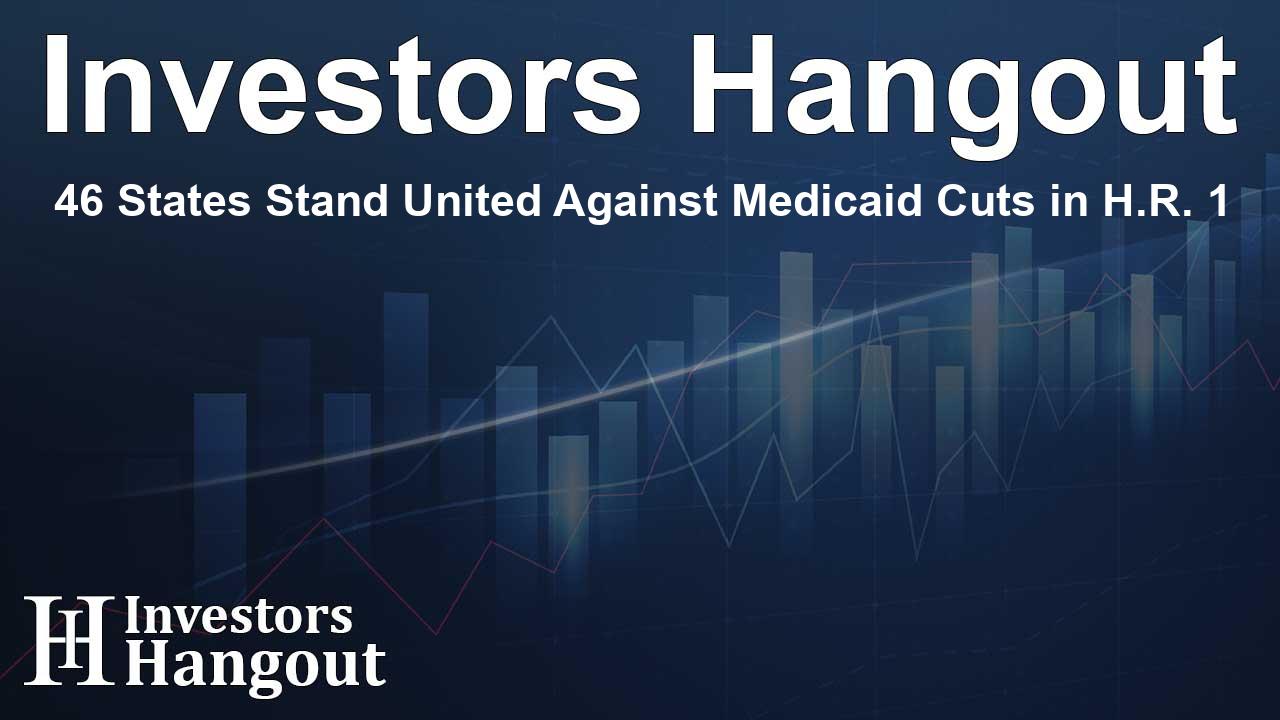46 States Stand United Against Medicaid Cuts in H.R. 1

46 State Medical Associations Oppose Medicaid Cuts in H.R. 1
The proposed House Budget Reconciliation bill could result in over 7.8 million individuals losing their Medicaid health care coverage.
As the Senate prepares for an impactful vote on H.R. 1, a coalition comprising 46 state medical associations has united their voice, advocating against the proposed cuts to Medicaid. In a heartfelt letter facilitated by Physicians for Medicaid, they emphasize that the proposed changes would severely affect a broad spectrum of patients, including children, seniors, pregnant women, veterans, the disabled, and low-income families. Furthermore, various statewide hospital associations have expressed their concern, highlighting that these cuts will impact all health care providers.
This bill carries the weight of approximately $200 billion in reductions to established provider taxes, a financial structure that supports state budgets and upholds our nation’s healthcare system. With the potential to affect Medicaid programs across 49 states, the consequences could be disastrous.
Notably, provider taxes have been a longstanding element of federal law, supported by both political parties, and have been validated by state legislatures for decades. This system has proven essential, ensuring that rural hospitals, nursing homes, maternity wards, and medical practices remain operational and can serve their local communities.
The legislation intends to impose damaging reforms on federal student loan programs, which could deter future doctors from entering the medical field, a concern that emerges amid existing physician shortages. The medical associations are emphasizing the need for balanced reforms that enhance the physician workforce and safeguard access to Medicaid for their patients.
The letter articulates a grim reality: "If these provider tax cuts take effect, states will face substantial budgetary impacts, leading to increased taxes or reduced benefits and coverage. These cuts may congest emergency departments further. Many rural hospitals, nursing homes, and community health practices could be compelled to close their doors to all patients." This statement encapsulates a burgeoning crisis.
Within H.R. 1, three critical provisions stand out that threaten to either limit or altogether eliminate existing provider taxes across the country:
Moratorium on New or Increased Provider Taxes
The first provision, SEC. 44132, establishes a moratorium on any future increases or new taxes post-enactment. This restriction threatens to stifle necessary funding designed to keep pace with rising health care costs, potentially leaving states at a disadvantage as they attempt to meet their healthcare needs.
Revising Payments for State Directed Payments
SEC. 44133 introduces limitations on payments funded through established provider taxes. This could lead to dire financial shortfalls since Medicare rates are significantly lower than the actual costs associated with providing health care, jeopardizing the services offered by public health facilities and specialists dealing with the most severely ill patients.
Uniform Tax Requirement for Medicaid Provider Tax
This section, SEC. 44134, mandates uniform taxation across various provider categories. While the intent is to create consistency, it may also eliminate vital funding sources in numerous states. The discretion granted to the HHS Secretary for transitional adjustments is not a reliable safety net for states navigating these changes.
The conclusion drawn from the collective letter is emphatic: "These provisions verge on destabilizing state healthcare frameworks, diminishing access to essential care while exacerbating physician shortages.” The medical associations reinforce their commitment to protecting Medicaid, which serves an essential role for millions of Americans.
Frequently Asked Questions
What led the 46 state medical associations to oppose H.R. 1?
The associations are concerned that H.R. 1 would lead to devastating cuts in Medicaid funding, resulting in millions losing their health care coverage.
How many people are estimated to lose Medicaid coverage under H.R. 1?
It is estimated that over 7.8 million Medicaid enrollees may lose their coverage if H.R. 1 is enacted.
What impact will the proposed cuts have on healthcare providers?
The cuts will strain provider budgets, potentially forcing many facilities, especially in rural areas, to close or reduce services, leading to increased patient burdens.
Why are provider taxes necessary?
Provider taxes help finance essential health services, ensuring that healthcare facilities remain open and can provide care to communities.
What alternatives do medical associations suggest for H.R. 1?
They are encouraging the Senate to pursue comprehensive reforms that expand the healthcare workforce and protect Medicaid, rather than cutting funding.
About The Author
Contact Owen Jenkins privately here. Or send an email with ATTN: Owen Jenkins as the subject to contact@investorshangout.com.
About Investors Hangout
Investors Hangout is a leading online stock forum for financial discussion and learning, offering a wide range of free tools and resources. It draws in traders of all levels, who exchange market knowledge, investigate trading tactics, and keep an eye on industry developments in real time. Featuring financial articles, stock message boards, quotes, charts, company profiles, and live news updates. Through cooperative learning and a wealth of informational resources, it helps users from novices creating their first portfolios to experts honing their techniques. Join Investors Hangout today: https://investorshangout.com/
The content of this article is based on factual, publicly available information and does not represent legal, financial, or investment advice. Investors Hangout does not offer financial advice, and the author is not a licensed financial advisor. Consult a qualified advisor before making any financial or investment decisions based on this article. This article should not be considered advice to purchase, sell, or hold any securities or other investments. If any of the material provided here is inaccurate, please contact us for corrections.
